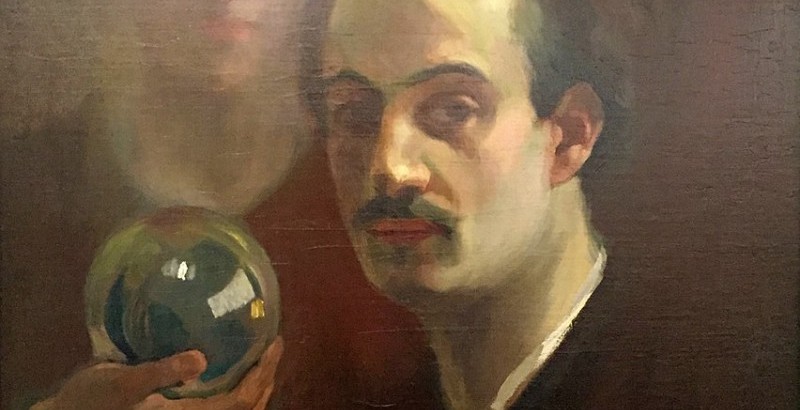Joan Acocella at Literary Hub:
 What made The Prophet so fantastically successful? At the opening of the book, we are told that Almustafa, a holy man, has been living in exile, in a city called Orphalese, for twelve years. (When The Prophet was published, Gibran had been living in New York, in “exile” from Lebanon, for twelve years.) A ship is now coming to take him back to the island of his birth. Saddened by his departure, people gather around and ask him for his final words of wisdom—on love, on work, on joy and sorrow, and so forth. He obliges, and his lucubrations on these matters occupy most of the book.
What made The Prophet so fantastically successful? At the opening of the book, we are told that Almustafa, a holy man, has been living in exile, in a city called Orphalese, for twelve years. (When The Prophet was published, Gibran had been living in New York, in “exile” from Lebanon, for twelve years.) A ship is now coming to take him back to the island of his birth. Saddened by his departure, people gather around and ask him for his final words of wisdom—on love, on work, on joy and sorrow, and so forth. He obliges, and his lucubrations on these matters occupy most of the book.
Almustafa’s advice is not bad: love involves suffering; children should be given their independence. Who, these days, would say otherwise? More than the soundness of its advice, however, the mere fact that The Prophet was an advice book—or, more precisely, “inspirational literature”—probably ensured a substantial readership at the start. Gibran’s closest counterpart today is the Brazilian sage Paulo Coelho, and his books have sold nearly a hundred million copies.
Then there is the pleasing ambiguity of Almustafa’s counsels. In the manner of horoscopes, the statements are so widely applicable (“your creativity,” “your family problems”) that almost anyone could think that they were addressed to him.
More here.
